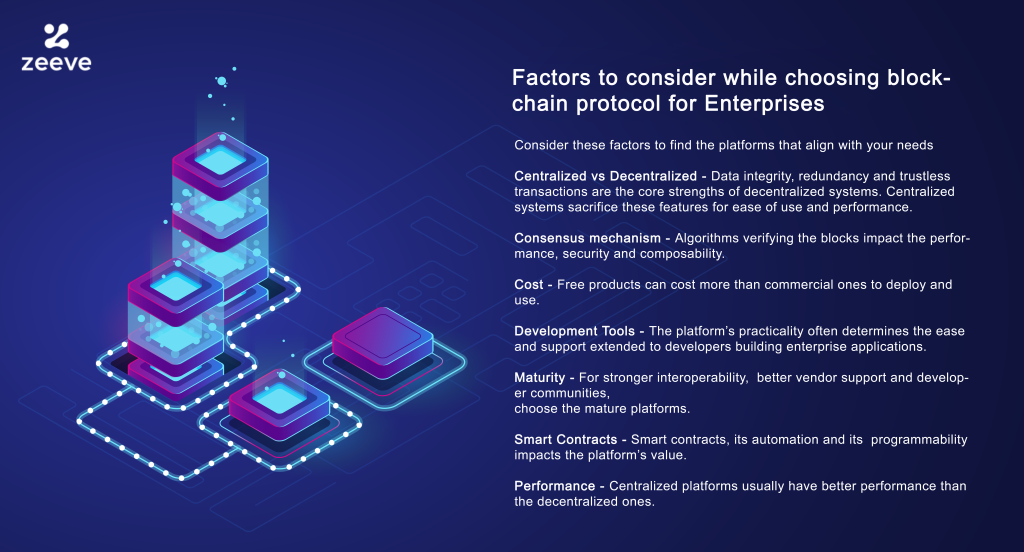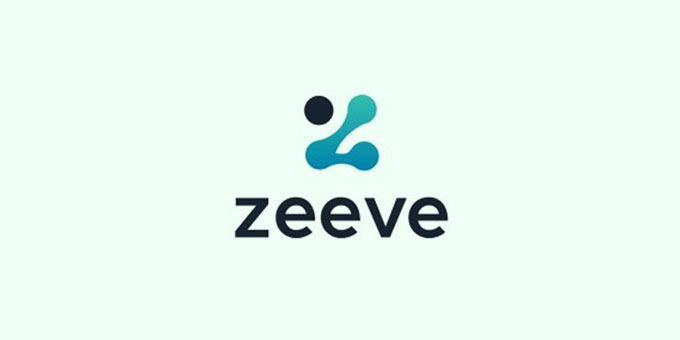We all know that blockchain technology or the “distributed ledger” technology is no longer applicable only to cryptocurrencies. Many different types of enterprise blockchain infrastructure have unfolded since the announcement of bitcoin.
Most enterprises know that blockchain will make work easier for them. But they don’t know “how”? Furthermore, with the launch of Hyperledger and Corda, narratives have changed. In a couple of years, we have seen how industries have opted for digitization. Along with digitization, enterprises are now routing for blockchain technology.
Even notable enterprises such as JPMorgan, Microsoft, PayPal, and many more are opting for blockchain networks. The technology can transform any industry by streamlining operations, increasing efficiency, and also reclining cyber-attacks.
In this blog let’s find out more about the reason for decentralization in the first palace. Various types of blockchain for the enterprise networks. Perks of being on a private network and a final outlook on blockchain opportunities for private enterprises in emerging markets.
Decentralization in Blockchain network
One can consider blockchain as a system that records information in such a manner that it cannot be modified later by anyone. There is encryption which makes the technology decentralized.
Decentralization in the blockchain allows transparency. Here there is no centralized organization such as a government agency, bank, or other institution to exert authority. Everyone on the network has a fair share of accessing information and resources.
You must have heard of the Ethereum blockchain. Yes, that is one of the examples of a trustless and decentralized system where any bank or institution does not do decision-making. The control of the network is equally shared among the members.
The key challenges in making enterprise blockchain applications a reality are on the managerial level as the integration of blockchain with the existing network is difficult. Many enterprises are using blockchain in the testing phase and are hesitant to deploy the private enterprise blockchain. The challenges are existing regulations, building a viable ecosystem, and following standards.
Four types of Blockchain Network
Although blockchain technology remains the same, different types are geared according to the target end-users. Here are the four types of blockchain:
Public
A public blockchain network has excellent flexibility and interoperability. Here, any network participant can take part in reading, writing, or auditing on the network. Most of the cryptocurrencies we hear work on a public network.
Private
It operates on a closed network where only particular members are allowed. Here, permission has to be granted. These private blockchains can support multi-party collaboration in digitizing business processes.
Consortium
On such a blockchain, two or more organizations can collaborate. They can define the network rules. Here one can get more scalability. The network can be fully permissioned or semi-decentralized. As there are preselected sets of nodes to control the mining process.
Hybrid
In the hybrid, one can get the best of both worlds -public and private blockchain protocols. Here the organizations can set up a public system alongside a private permissioned system. This will let the organization control who can access public and private information.
What is Enterprise Private Blockchain?
When enterprises integrate blockchain technology for streamlining operations, settling payments, etc. The operations in enterprises differ from that of a start-up or a crypto exchange, the blockchain integrated here is also different. The enterprise blockchain is generally permissioned and is mainly a private or consortium network.
With shifting trends in private enterprise blockchain, the market dynamics point towards the usage and popularity of enterprise blockchain. The global private enterprise blockchain market is predicted to reach $87 billion by 2030.
Source: Enterprise Blockchain Forecast 2019-2024
Best Blockchain Platform for Enterprises
To decide on the best blockchain platform for private enterprise, one can look for factors such as development status, reputation, consensus protocol, and smart contract functionality of a platform. Here are five popular blockchain platforms for enterprises:
Ethereum
The Ethereum enterprise private blockchain can be built on its Mainnet, or on a private blockchain based on Ethereum such as Hyperledger. The enterprise Ethereum allows businesses to create customized blockchain networks by employing the Ethereum codebase. The benefits offered by the network are:
- Easy and Rapid Deployment
- Open Source
- Permissioned & Private Networks
Hyperledger
It supports diverse business processes & offers a wide array of tools and frameworks. The platform started in 2015 and works on cross-chain blockchain technologies. Hyperledger uses plug-and-play architecture to create an enterprise-grade platform. Along with it, it supports frameworks such as Hyperledger Sawtooth, Fabric, Indy, Caliper, etc. The blockchain is:
- Permissioned
- Modular architecture
- Queryable data
R3Corda
Corda is also an open-source platform and is a permissioned blockchain. R3 is a leading consortium that is built on the open-source platform Corda. The main reason for the creation was to regulate financial organizations. The network can be used for healthcare, government, digital identification, trade finance, and many more. Features of R3 Corda enterprise blockchain are:
- Solution architecture
- Provides deployment support
- Improved privacy compared to others
Quoram
Quoram is an open-source blockchain platform designed for private or consortium blockchain. The blockchain is enterprise-focussed and is especially targeted at the financial sector. It has a voting-based consensus mechanism. A few other features are:
- Enhanced privacy
- Community driven
- Enterprise-ready platform
Dragonchain
Dragonchain is a hybrid enterprise blockchain platform. It also offers incubator programs for budding start-ups to build applications on the platform. The platform allows easy integration of distributed ledger technology with cloud hosting. A few attributes of Dragonchain are:
- Open-source
- Serverless
- Flexible business focussed
Applications of Blockchain in Enterprises
Enterprise blockchain working on permissioned blockchain can block transactions if it does not comply with the rules. While we all know the finance sector has been thriving on private blockchain. In addition, the private enterprise blockchain network also supports diverse supply chain management.
As the supply chain is connected to multiple businesses, a private blockchain network can easily handle a large amount of data. On the other hand, it is a way to provide authority in logistics management as well. When it comes to conducting sensitive medical records, a private blockchain is more trustworthy. Refer to the infographic below to know more about the enterprise blockchain use cases:
Features of Private Blockchain Network
- The privacy can be of varying levels, and the members can customize restrictions for the users. A private network works best in determining the degree of access.
- The speed of transactions is faster on a private blockchain because of its centralized nature.
- The participants on the blockchain network are easy to identify as a central entity that grants everyone access.
- Among all the advantages, there is a disadvantage that a private blockchain is easy to hack. As there is a centralized authority, there is a single point of failure.
Why opt for a private blockchain?
As the business has so much sensitive data to handle. The business operations can choose that the information is traded with the correct organizations. The authority remains within the organizations. Startups mostly go for a public blockchain to bring out the innovations. However, enterprises have to build a multi-party application. Which requires high scalability and a trusted environment, and thus private blockchain is considered better.
Should enterprises opt for public blockchain?
A public blockchain is permissionless, and it does not have one entity to control the network. It has a large user base, and all the users are pseudonymously identified. However, the public blockchain is more secure than the private one. The reason is the large number of nodes on the network. Unlike private blockchain, there isn’t a single point of failure. If the system is hacked for any reason, the entire system will stop working.
3 Considerations for Enterprise Blockchain Protocols
Every blockchain is designed to cater to different necessities. A peer-to-peer transaction is well-suited on a public blockchain. However, a private blockchain is a popular choice to keep the information farther from the public domain.
- A private blockchain will be more reliable for enterprises handling confidential information, trade secrets, business records, and intellectual property. Confidentiality agreements between businesses are secured with more control over information.
- A private blockchain has a restricted number of users. Thus, it has less congestion. All the tedious and manual, time-consuming tasks are nullified. Furthermore, smart contract integration decreases the time delays.
- Every business knows about government auditing. With so much information like payroll documents, tax withholdings, and various other financial documents are there to take care of. With blockchain, securing and managing the information would be hassle-free. On top of it, accessing data from a private chain is easier.

Final Words on Enterprise Blockchain Solution
In a closed network, coordination is better. In addition, contractual agreements can be set beforehand. Enterprises can play safer and cost-efficiently by deploying blockchain. With a zero-trust environment and a private network to achieve better coordination and scalability. However, every organization needs to understand its business model first.
The technology is very versatile. In the upcoming years, both enterprises and blockchain technology will witness more and more changes. Hope you gained clarity on the usage of private enterprise blockchain. Enterprise blockchain adoption becomes easier when there is an enterprise blockchain development company to make the process efficient.
About Zeeve
Zeeve supports the deployment and management of nodes on the leading Blockchain protocols and services like Ethereum, Polygon, BNB Chain, Avalanche, Fantom, Tron, Bitcoin, Hyperledger fabric, R3 corda, Near Protocol, AXIA, Phaeton, Polkadot and many others. It provides ready to plug services like decentralized storage, decentralized identity, oracles, IoT as a service, etc. for building your dApps faster
It is a low-code automation platform that supports the backends of several blockchain protocols and provides comprehensive analytics. It not only deploys and builds the blockchain networks but also supervises their nodes. Get in touch with our certified enterprise blockchain professionals to learn about our blockchain sharing, managing, and deploying infrastructure platform.
To learn more about Zeeve, feel free to connect with us on Twitter and Telegram.






















